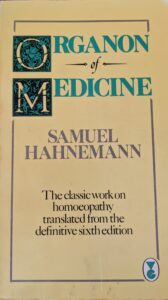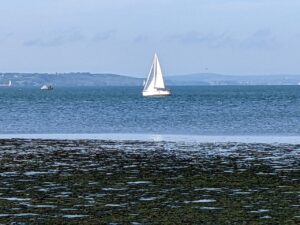I heard someone on the radio saying that we are living healthier and longer lives than ever before. In fact it is a mantra that is often stated. We take such a statement at face value because it seems to make sense, after all the average lifespan in the UK is just north of 80 years which is a good deal greater than the Biblical “three score years and ten”. And of course childhood mortality is now very low. So far, all for the good.

On the other hand, back in ‘lockdown’ when I cycled out into the New Forest and took a wander round a few rural churchyards, I was rather surprised to see people living to a good age a century of more back. Some into their eighties, which I suppose – being the strongest consitutions – would be ninety year olds of today.
I find much the same in rural churchyards I have visited elsewhere, though my analysis is hardly comprehensive.
Curiously, 34 seemed to be a hazardous age in one cemetery in the Outer Hebrides, my guide – a local man – was 43, and so I congratulated him on his achievement!
But seriously, it got me thinking about health. Are we truly healthier? What is the secret to living longer and healthier?
One of the wonders of the internet age is the ability to do a little armchair analysis. The NHS statistics service (NHSBSA) tells us that the cost of medicines prescribed in primary care in England was £9.4 billion in 2020/21, 55% of the total drug expenditure (hospital prescriptions making up the other 45%).
Seems to me that if we were truly living healthier lives, that longevity would not come at this cost.
That my wanderings have been into rural cemeteries in Britian is significant. I suspect the story in the industrial cities would be very different. Factory life was harsh. Social class was and remains today an important factor in health and lifespan.
So, my hypothesis could stand or fall on the data I choose to select (a subtlety not lost on those who write ‘scientific’ papers today, by the way).
Still, I will hazard a guess that rural communities who lived by the seasons, in unpolluted environments, ate simply, and worked hard but suffered low stress, were quite healthy. At a time when there was not much medical intervention either.
We need to understand why our drugs budget is so high. NHSBSA have some revealing statistical collections that tell us that:
Needless to say, the most deprived areas received the higher proportion of the prescriptions.
Drug cost is just a part of the picture. The drugs are a short term fix. In the longer term health conditions become more complex and more costly, especially where in-patient care is required.
How do you react to these figures?
Cardiologist Dr Assem Malhotra has some interesting observations – here is a recent interview with Dr Ken Berry MD on YouTube. It is worth a watch.
It should not come as a great surprise that the Malhotra and Berry conclude that the fundamentals of health for most of us are quite simple
I have written before about colour and diet, here is a nice photograph to illustrate the point.

Were it possible to go back in time and apply a light touch of modern medical practice, I rather think the longevity of our ancestors would match that of today, with better underlying health. By light touch, I mean simple steps to reduce infant death, handle trauma, and acute life threatenting conditions.
Towards the end of the interview Dr Malhotra explains the true cost to health of poor diet.
In this topsy turvy world is it not strange that ultra-processed food is cheaper than fresh simple food? Deprivation and disease go hand in hand.

I suppose this blog should be about homeopathy, yet no mention thus far. Well, here is a snippet.
Last month I wrote about Dr Samuel Hahnemann, generally considered the founding father of homeopathic medicine, who makes it very clear in his profound book, The Organon of Medicine that removing obstacles to cure is the first step to health. Here are his words written in the early 1800s:
It is obvious that every reasonable physician will first of all remove the causa occasionalis; after that the indisposition usually disappears on its own.
Organon of Medicine, Aphorism 7 footnote (in part) – Dr Samuel Hahnemann
It’s the old saying “a stitch in time saves nine”. So what might you sew (or sow) in 2023?
https://www.instagram.com/p/CnMSdUPo5JW/
It was concerning to read about the quantity of pharma drugs in rivers today. This article considers the consequences and alternatives.

Back in February The Week published the following short article:
Pharmaceutical pollution is contaminating the rivers on every continent, a major study has shown. Scientists at the University of York measured the levels of 61 active pharmaceutical ingredients (APIs) in 258 rivers around the world, including the Thames and the Amazon.
Just two areas had unpolluted waters: Iceland and a part of Venezuala whose indigenous inhabitants don’t use modern medicine. The most common APIs were an anti-epileptic drug called carbamazine and the diabetes drug Metformin, along with paracetamol, antibiotics and caffeine.
Potentially toxic levels of drugs were in a quarter of the sites, and the highest being in low-to-middle income countries such as India and Nigeria – possibly because their populations have encough money to by drugs but may live in areas without good sewage infrastructure.
The most contaminated site in the UK was the River Clyde in Glasgow.
The study, published in the journal Procedings of the National Academy of Sciences, warned that pharmaceutical pollution poses a risk to wildlife, and could also contribute more to antimicrobial resistance in humans.
The Week 26th Feb 2022
Previously on a BBC science programme I heard that the equivalent of 200 pills of Metformin pass under the bridges of the Thames every hour. Even the apparently pristine River Dee in Royal Deeside carries a significant pharmaceutical burden as this report shows. Hopefully the famous Deeside Water – highly regarded for its purity – is sourced well upstream!
The NHS Health Survey for England 2016 states that nearly half of adults had taken one prescribed medicine in the last week and 24 percent had taken three or more. The total cost at list price of prescriptions dispensed in the community in 2016 was just short of £10 billion. It is not an improving situation.
None doubt the value of medicines, but health impact both on the individual and the enviromnment of long-term use is a matter worthy of discussion.
For the first time since school days I read again Aldous Huxley’s dystopian novel Brave New World written in the 1930s. His vision was one where the highs and lows of human existence were under the control of a world state. With remarkable prescience Huxley foresaw the path we are on today. Elsewhere he remarked, “Medical science has made such tremendous progress that there is hardly a healthy human left”. I dare say there is a degree of overstatement here, but he had a point nonetheless.
It is a subject I indirectly blogged on previously
What is health? That is the question. During the first lockdown of the pandemic I cycled out into the New Forest and visited a couple of Churchyards. I was struck by the longevity even in an age of no medical care.
It made me think about the late Jan de Vries, a remarkable naturopath who ran a clinic on the west coast of Scotland until his death in 2015. He wrote many books amongst them 10 Golden Rules for Good Health. Attention to these basic principles would do much to reduce the burden on the NHS not to mention the individual.
I do not underestimate the challenge: a very rural 19th century New Forest is very different from modern city life.
Homeopathy, osteopathy, naturopathy and other forms of so-called Complementary and Alternative Medicine (CAM) all seek to maintain the human organism in balance.
They are not always quick fixes. The saying “a stich in time saves nine” is very true – the longer things are our of balance the longer it takes to correct.
Sadly, CAM has been marginalised in the health service. Some argue that such approaches do not work and waste money. Yet, the long term cost of the current medical model is problematic.
Time for a rethink?